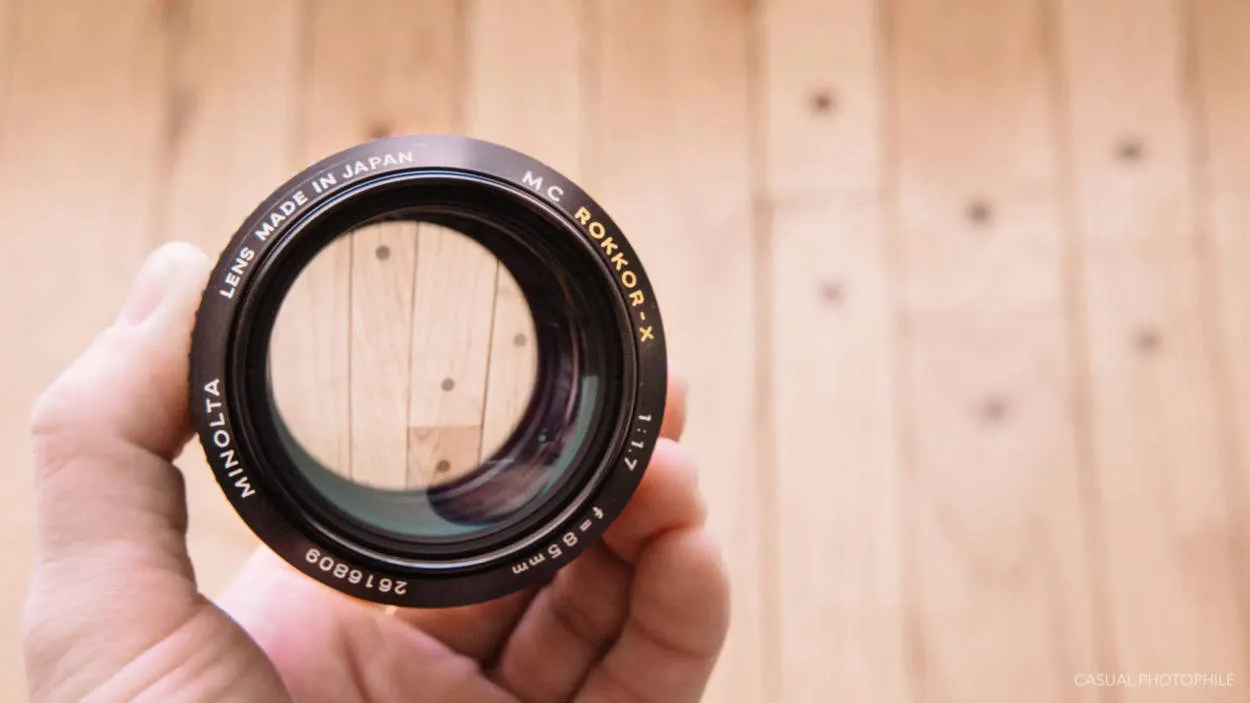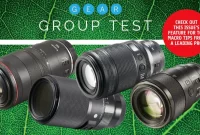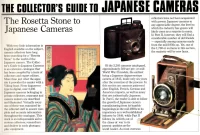Understanding Japanese Camera Lenses: A Comprehensive Review
Different Types of Camera Lenses
In this comprehensive review of Japanese camera lenses, we will explore the various types of lenses available for photographers. As the lens is an essential component of a camera, understanding the different types can greatly enhance your photography skills and help you capture stunning shots.
1. Prime Lenses
Prime lenses, also known as fixed focal length lenses, have a single focal length and cannot zoom in or out. These lenses are known for their superior image quality, wide aperture range, and versatility in low-light conditions.
2. Zoom Lenses
Zoom lenses offer variable focal lengths, allowing you to adjust the magnification of your subject without physically changing lenses. They are popular among photographers who require flexibility in different shooting scenarios, such as landscapes, portraits, and wildlife photography.
3. Macro Lenses
Macro lenses are designed for close-up photography, enabling you to capture intricate details of small subjects like insects, flowers, or jewelry. These lenses have a high magnification ratio and provide excellent sharpness and clarity at close distances.
4. Wide-Angle Lenses
Wide-angle lenses have a shorter focal length, typically less than 35mm, allowing you to capture a broader field of view. They are ideal for landscape, architecture, and street photography, as they can capture more of the scene and add depth and perspective to your images.
5. Telephoto Lenses
Telephoto lenses are characterized by their long focal lengths, typically above 70mm. These lenses allow you to magnify distant subjects and are widely used in sports, wildlife, and portrait photography. They compress the perspective and create a shallow depth of field, emphasizing the subject against a blurred background.
6. Fish-Eye Lenses
Fish-eye lenses have an extremely wide-angle of view, often exceeding 180 degrees. They create a distinct, curved perspective that can add a unique visual effect to your photographs. Fish-eye lenses are popular in creative photography and capturing wide panoramic shots.
Understanding these different types of camera lenses will help you choose the right lens for your specific photography needs. Each lens type has its strengths and limitations, so experimenting with various lenses can expand your creative possibilities and enhance your photographic skills.
Key Features and Benefits of Japanese Camera Lenses
Japanese camera lenses have gained a reputation for their exceptional quality and advanced technology. Whether you are a professional photographer or an enthusiast, understanding the key features and benefits of Japanese camera lenses can greatly enhance your photography experience. In this article, we will explore the remarkable features that make Japanese camera lenses stand out from the competition.
Superior Optical Performance
One of the main reasons why Japanese camera lenses are highly regarded is their superior optical performance. Japanese lens manufacturers utilize cutting-edge technology and precision engineering to produce lenses that deliver stunning image quality, sharpness, and clarity. With minimal distortion and excellent edge-to-edge sharpness, these lenses allow photographers to capture images with outstanding detail and color accuracy.
Wide Range of Focal Length Options
Japanese camera lenses offer a wide range of focal length options, catering to various photography genres and shooting conditions. Whether you prefer wide-angle lenses for capturing landscapes, telephoto lenses for wildlife or sports photography, or macro lenses for extreme close-ups, Japanese lens manufacturers have an extensive selection to meet your specific needs.
Advanced Autofocus Systems
Japanese camera lenses are renowned for their advanced autofocus systems, which ensure swift and accurate focusing even in challenging shooting situations. These autofocus systems utilize advanced technologies such as ultrasonic motors or stepping motors, providing quiet and precise focus control. With fast and reliable autofocus capabilities, photographers can capture fleeting moments with ease.
Outstanding Build Quality
Japanese camera lenses are built to last, boasting exceptional craftsmanship and durability. They are often constructed with high-quality materials, featuring robust metal barrels and weather-sealing to provide protection against dust and moisture. This build quality ensures that Japanese lenses can withstand the demands of professional use and withstand the test of time.
Wide Compatibility
Japanese camera lenses are designed to be compatible with a wide range of camera brands and models. Whether you own a Nikon, Canon, Sony, or Fujifilm camera, you can find Japanese lenses that will seamlessly integrate with your system. This compatibility allows photographers to easily switch between different lenses and take advantage of the vast selection available.
Japanese camera lenses continue to lead the industry with their exceptional performance, innovative features, and reliability. By understanding the key features and benefits of Japanese camera lenses, photographers can make informed choices when investing in new equipment and elevate their photography to the next level.
Tips for Choosing the Right Lens for Your Photography Needs
When it comes to photography, having the right lens can make all the difference in capturing the perfect shot. With a wide range of lenses available, it can be overwhelming to choose the one that best suits your specific needs. Here are some tips to help you navigate through the options:
1. Determine Your Photography Style
Before you start shopping for lenses, it’s important to consider your photography style. Are you more into landscapes, portraits, or sports photography? Each genre has its specific lens requirements, so understanding your style will help you narrow down your choices.
2. Know the Lens Types
Familiarize yourself with different lens types such as prime lenses, zoom lenses, macro lenses, and wide-angle lenses. Each type has its advantages and limitations. Prime lenses, for example, offer superior image quality and wide apertures, while zoom lenses provide versatility and convenience.
3. Consider the Focal Length
The focal length of the lens determines its angle of view and magnification. Wide-angle lenses have shorter focal lengths and are ideal for capturing expansive landscapes, while telephoto lenses have longer focal lengths and are great for sports or wildlife photography.
4. Aperture Size Matters
The aperture size affects the depth of field and the lens’s ability to gather light. A wider aperture (smaller f-number) allows for more light and a shallow depth of field, perfect for blurry backgrounds and low-light conditions. Consider your shooting conditions and desired aesthetic when choosing an aperture.
5. Look Into Lens Compatibility
Make sure the lens you choose is compatible with your camera body. Different camera brands have their own lens mounts, so double-check before making a purchase.
6. Research and Read Reviews
Before buying a lens, conduct thorough research and read reviews from photographers who have used the lens you’re interested in. This will provide insight into the lens’s performance, image quality, and durability.
Remember, choosing the right lens involves considering your photography style, understanding different lens types, focal length, aperture, compatibility, and doing proper research. By taking these factors into account, you’ll be able to find the perfect lens to enhance your photography experience.
Comparing Japanese Camera Lenses to Other Brands
When it comes to camera lenses, Japanese manufacturers have long been recognized for their exceptional quality and innovation. In this article, we will compare Japanese camera lenses to those from other brands, highlighting the unique strengths that make Japanese lenses stand out in the market.
1. Optical Performance
Japanese camera lenses are renowned for their outstanding optical performance. Utilizing advanced lens technologies and precision engineering, they consistently deliver sharpness, clarity, and excellent color reproduction. Whether you are capturing landscapes or portraits, you can expect superior image quality from Japanese lenses.
2. Innovation and Technology
Japanese lens manufacturers are pioneers in lens technology. They constantly push the boundaries of innovation, introducing cutting-edge features and improvements. From silent autofocus systems to image stabilization mechanisms, Japanese lenses often incorporate groundbreaking technologies that enhance the shooting experience and improve overall performance.
3. Vast Range and Diversity
Japanese camera lens manufacturers offer a wide range of products to cater to diverse photographic needs. Whether you are a professional photographer or a hobbyist, you can find lenses suitable for various genres such as landscape, portrait, macro, and sports photography. The extensive selection ensures that there is a Japanese lens available for every shooting situation.
4. Build Quality and Durability
Japanese lenses are known for their exceptional build quality and durability. They are meticulously crafted using high-quality materials, ensuring long-lasting performance even in demanding conditions. The robust construction and weather sealing of Japanese lenses provide photographers with peace of mind, allowing them to focus on capturing the perfect shot without worrying about the lens’s reliability.
In conclusion
Understanding the strengths of Japanese camera lenses compared to other brands is essential for photographers who demand exceptional image quality and reliability. From optical performance and technological innovations to the vast range of options available, Japanese lenses continue to set the standard in the industry.
Conclusion
Japanese camera lenses offer exceptional quality and performance, catering to the needs of professional photographers and enthusiasts alike. With a wide range of options available, these lenses provide excellent sharpness, precise autofocus, and superb image stabilization. Whether you’re into landscapes, portraits, or wildlife photography, Japanese camera lenses are a reliable choice for capturing stunning images.




